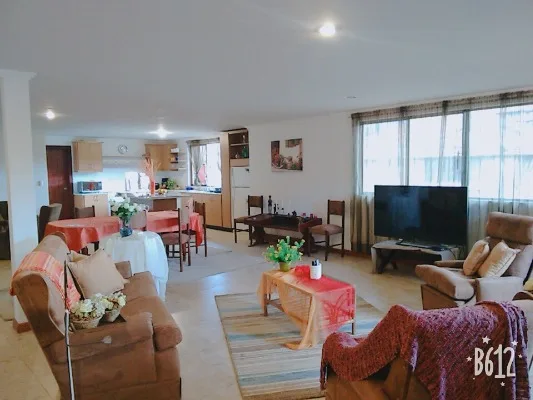Marchers converge on Quito for national strike; Correa says the strike will fail, organizes counter demonstrations and pledges to keep roads open
As indigenous marchers approach Quito from the south and north, the question on everyone’s mind is how effective will the national strike that begins on Thursday be.

Indigenous marchers in Latacunga on Monday.
President Rafael Correa gave his verdict on Monday at a Diez de Agosto independence day commemoration ceremony. “It will be much smaller than predicted and it will fail,” he said.
Former presidential advisor Carlos Fernandez believes the president is probably right. “We won’t know the impact of the protest until Thursday, but the number of participants appears to be much lower than they had hoped for,” he said. “I believe that Correa is feeling pretty good at this point. He outlasted the right-wing tax protests — at least for now — and it seems that the left-wing protest will fall short of expectations too.”
On Monday, mostly indigenous marchers from southern Ecaudor rallied in Latacunga, 40 miles south of Quito. César Pilamundo, president of the Indigenous and Peasant Movement (MIC) said the protesters would not leave Quito until they get what they wanted. “We will not allow further deceit, we will not be lied to again, and to bear the threats and persecution of this government,” he said. “Our brothers and sisters in the unions will begin to join us and our numbers will be overwhelming when we reach Quito.”
Other groups expected to join the marchers include labor, teachers and retiree organizations.
The protesters bring a long list of complaints to Quito, including a demand to return water management to local control in rural areas, cessation of mining activities, and the reinstatement of the government’s 40% contribution to the Social Security program that was eliminated in April. They also oppose a proposed constitutional amendment that would allow Correa to seek another term as president and the pending free trade agreement with the European Union.
Jorge Herrera, president of the Confederation of Indigenous Nationalities of Ecuador (CONAIE) told the marchers that the protest would be peaceful and the only trouble he expected was from the police. “Why are there so many police here? The government is trying to intimidate us and take our rights away,” he said.
Herrera said the protest is intended to influence government policy, not to overturn the government.
Correa has pledged to keep the major highways open during the strike and has mobilized thousands of national police from around the country to keep traffic moving.
Correa’s Alianza Pais party is organizing counter demonstrations of indigenous and labor groups that support the government. “The real voices of the people will be heard above the small minority who want to disrupt the country,” Correa said.





















